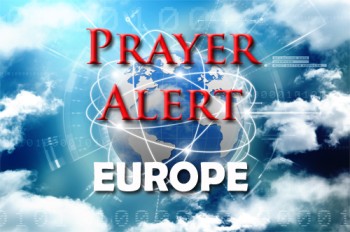Displaying items by tag: North Korea
Trump’s strikes on Iran harden North Korea’s nuclear resolve
Donald Trump’s decision to authorise airstrikes on three Iranian nuclear facilities has strengthened North Korea’s belief that nuclear weapons are vital for regime survival. While both nations seek deterrence, North Korea’s approach is rooted in preserving the Kim regime itself, backed by its extensive nuclear and missile arsenal. A US strike on that arsenal is highly unlikely, due to the country’s ability to target Seoul and US interests in the Indo‑Pacific. Its deeply buried nuclear facilities and alliances with Russia and China further complicate any potential attack. Experts have warned that Trump’s decision has had a significant impact on Pyongyang’s foreign policy, strengthening its belief that possessing nuclear weapons guarantees survival. With deepening mistrust of the USA, North Korea will be even less likely than before to change its belligerent attitude.
North Korea: strong criticism of proposed new US missile defence system
North Korea has strongly condemned the US plan to develop a futuristic ‘Golden Dome’ missile defence system, warning it could trigger a nuclear arms race in space. The system, promoted by Donald Trump to counter next-generation threats such as hypersonic and cruise missiles, is viewed by Pyongyang as a provocation that would undermine its nuclear deterrent. North Korea’s foreign ministry described the plan as arrogant and dangerous, while China has called it a threat to global stability, saying the USA is ‘obsessed’ with its own security. Analysts note the system could compel North Korea to advance its missile capabilities. While many experts agree that US defence infrastructure needs updating, critics point to the potential geopolitical fallout and high costs - estimated at up to $500 billion long-term. Strategic tensions over space militarisation continue to grow as nations grapple with balancing national defence and global security.
North Korea: she defected, encountered Jesus, then went back
Joo Min (not her real name) once risked her life leaving North Korea to escape starvation and oppression. But then she encountered Christ in a secret safe house run by Open Doors. Raised to believe Christians were dangerous, she was initially resistant, but the love and kindness of believers transformed her. She accepted Jesus, was baptised, and underwent biblical and persecution survival training. Feeling a divine calling, she bravely reentered North Korea to spread the Gospel, knowing the immense risks. Now a leader in the underground church, she continues to share the light of Christ despite the threat of imprisonment or death. She asks for prayers for protection and courage as she serves in a land overshadowed by darkness. For other stories about Christians facing danger for their faith, order or download the Open Doors World Watch List here.
Ukraine: what the North Korean soldiers are experiencing
North Korean soldiers are reportedly fighting alongside Russian forces in Ukraine, employing brutal, near-suicidal tactics. Western intelligence estimates up to 12,000 North Koreans have been deployed to Russia’s Kursk region since November, with 4,000 killed or injured. Ukrainian special forces describe the troops as relentless, often refusing to surrender and committing suicide with grenades to avoid capture. They are using strange warfare strategies, removing body armour for speed, executing frontal assaults, and even using fellow soldiers as bait to target attack drones. They leave behind propaganda-filled notes pledging loyalty to Kim Jong Un and condemning Ukraine. Despite extensive military training, they are struggling with modern warfare, particularly drone technology, leading to high casualties.
Startling contrasts between North and South Korea
The church in North Korea is growing at a remarkable 6% a year, far higher than the South Korean church's 0.7% growth rate, despite severe persecution under the Kim regime. With 400,000 Christians, North Korean believers face imprisonment or death for their faith, yet they persevere, using secret prayer codes and worshipping in hidden mountain sanctuaries. Miraculous healings often lead to conversions, highlighting God's power amidst oppression. In contrast, South Korea, renowned for its vibrant Christianity, faces a decline in faith among the younger generation. Nonetheless, South Korean churches remain a global force, with extensive missionary outreach, including efforts in countries like Afghanistan and North Korea. Initiatives such as Operation Dandelion, which sends Bibles into North Korea via balloons, demonstrate their dedication. Persecution in the North has ignited revival, while prosperity in the South has dulled spiritual fervour: but faithful witness continues to bring people to Christ across both Koreas.
North Korea fires ballistic missiles just before US election
Just a few hours before the US presidential election began, North Korea launched several short-range ballistic missiles into the sea east of the Korean peninsula. The missiles were fired from a province south of Pyongyang. South Korea confirmed the launch but has not released further details. Kim Jong-un’s sister, Kim Yo-jong, condemned the recent US-South Korea-Japan trilateral air drills involving B-1B bombers, calling them ‘hostile’ and ‘invasive’. She argued that such actions justified the expansion of North Korea’s nuclear programme. This missile test follows a significant launch on 31 October, when North Korea tested what is believed to be a new intercontinental ballistic missile. South Korean officials had earlier warned that North Korea might engage in provocative actions around the US election, raising regional tensions and global concerns.
Seoul vows response as North Korean troops head to Ukraine
South Korean president Yoon Suk Yeol has vowed that his government ‘won’t sit idle’ following reports that North Korea has sent three thousand troops to support Russia in its war against Ukraine. In a meeting with the Polish president, Yoon said that this deployment violates UN resolutions and threatens global security. South Korea’s spy agency says North Korea aims to send up to ten thousand troops to Russia by the end of 2024, though both Moscow and Pyongyang deny the claims. In response, Yoon indicated that South Korea is preparing diplomatic, economic, and military countermeasures in collaboration with allies, including possibly providing Ukraine with weapons systems. While South Korea has so far only supplied Ukraine with non-lethal aid, the situation may prompt a shift in policy. Tensions in the Korean peninsula have intensified as North Korea has reportedly used Russia's invasion of Ukraine as an opportunity to enhance its nuclear and missile programmes. The two leaders also discussed expanding defence cooperation, including new arms deals for Polish military upgrades. See
North Korea trash balloons disrupt flights in Seoul, cause rooftop fire
North Korea has sent approximately 500 balloons filled with trash into South Korea's airspace over the past 24 hours, South Korean officials reported on Thursday (Jul 25). These balloons have disrupted flights and even ignited a fire on a residential building's roof. This act is part of an ongoing propaganda campaign by Pyongyang against North Korean defectors and activists in the South, who often send balloons carrying anti-Pyongyang leaflets, medicine, money, and USB sticks loaded with K-pop videos and dramas. A suspected balloon led to a two-hour suspension of take-offs and landings at Seoul's Gimpo Airport on Wednesday evening, according to an official at the Korea Airports Corporation. Similar disruptions have occurred at Incheon International Airport in recent weeks. In Gyeonggi province, near Seoul, a balloon caused a fire on a residential building, which firefighters quickly extinguished. South Korea's military reported that some trash balloons were equipped with timed poppers designed to spread trash and potentially cause fires. Lee Sung-jun, a spokesperson for South Korea's Joint Chiefs of Staff, confirmed that 480 balloons had landed, mostly carrying paper and plastic trash. Some balloons even landed near the heavily guarded presidential office in Seoul on Wednesday.
Russia / North Korea: mutual defence agreement against ‘aggression’
Vladimir Putin and Kim Jong Un have signed a mutual defence agreement pledging support in case of ‘aggression’ against either country. The announcement followed Putin's visit to Pyongyang, his first since 2000, which Kim described as elevating their relationship to a ‘new, high level of alliance’. The pact raises Western concerns, potentially leading to Russian assistance for North Korea in a Korean conflict and North Korean support for Russia in Ukraine. Kim is accused of supplying Russia with weapons, while Putin is believed to be providing North Korea with space technology for its missile programme. Both leaders criticised Western sanctions and vowed to counter them. Kim expressed strong support for Russia's war in Ukraine, marking a historic moment in their alliance.
North / South Korea: balloon warfare
North Korea has launched over 260 balloons filled with rubbish into South Korea, leading authorities to warn residents to stay indoors and avoid touching the balloons and attached plastic bags, which contain ‘filthy waste and trash’. North Korea had threatened to do this in retaliation against South Korean activists' leaflet campaigns. Residents near Seoul received alerts to avoid outdoor activities and report any ‘unidentified objects’ to authorities. Photos on social media show balloons carrying items like toilet paper, soil, batteries, and possibly even faeces. South Korea's military, condemning the action as a violation of international law and a threat to public safety, have demanded that North Korea cease these actions. Historically, both Koreas have used balloons for propaganda.









